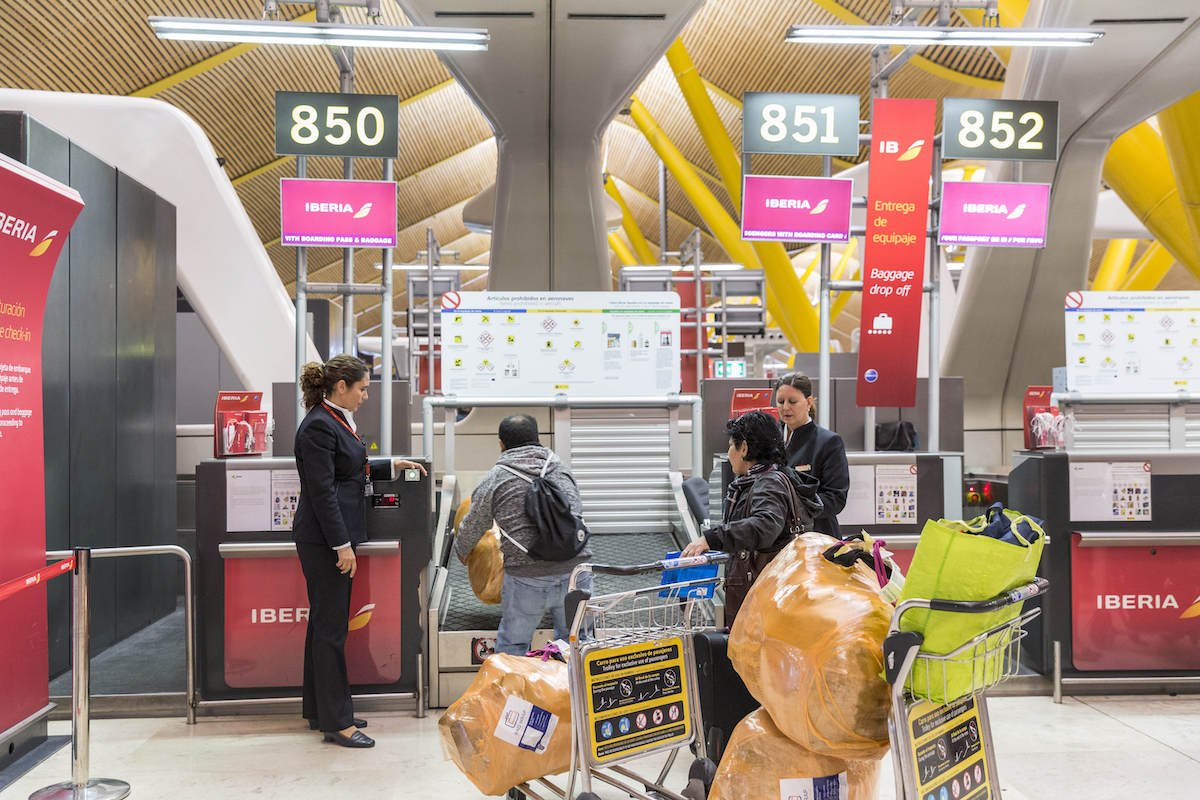Skift Take
Leisure travelers are still fueling strong results at British Airways and Iberia.
Asked point blank if International Airlines Group, the owner of British Airways and Iberia, saw any declines in airfares or travel demand, CEO Luis Gallego was blunt. “We don’t see that,” he said.
The group, one of the largest in Europe that also includes Aer Lingus and discounter Vueling, is doing extremely well. Travel demand is robust with about 80% of its third-quarter schedule already booked, IAG reported in its first-half results Friday. And that is driving higher yields — a rough proxy for airfares — across its businesses, and not just long-haul international markets.
In fact, IAG made its largest gains in domestic markets — Spain and the UK — and in Europe where yields, measured in passenger unit revenues, were up 19% and 18%, respectively, in the second quarter. Group yields increased just over 13% with improvements in every segment.
“We continue to see strong demand in the third quarter,” IAG Chief Financial Officer Nicholas Cadbury said, indicating the yield increases will continue.
Air France-KLM, which also reported its second-quarter results Friday, sees similar demand trends. Group yields increased 12%. The airline said it sees a “strong yield environment” in the second half of the year.
U.S. airlines are seeing different yield trends. There, domestic yields are falling as highlighted this week by primarily-domestic carriers Alaska Airlines and Southwest Airlines.
But that is not indicative of travel demand, which remains robust. It’s more about comparisons to the record yields airlines made last year, and elevated levels of capacity growth in the U.S. as the industry pushes towards a full recovery.
Results at U.S. legacy carriers American Airlines, Delta Air Lines, and United Airlines were all buoyed by their long-haul international networks where travel demand has surged.
Travel demand strength, despite economic concerns in Europe and the U.S., is proving true across industries. French hotel group Accor saw its profits surge in the second quarter with CEO Sébastien Bazin saying they expect the momentum to “continue for the coming months.” Hilton reported similar trends in its record second quarter results.
Here are three other takeaways from IAG’s second-quarter call.
Corporate Recovery Struggles in UK
Corporate traffic is “recovering more slowly than we thought,” Gallego said. That’s no surprise given the similar comments from other airlines around the world.
What stands out though is the differences within IAG. At British Airways, corporate volumes are only back to roughly 61% of 2019 levels while revenues are at roughly 69%. But at Iberia, the same two metrics are 82% and 95% recovered. Gallego attributes that gap to different return-to-office rates in Spain and the UK.
IAG maintains expectations that corporate travel revenues will recover to roughly 85% of 2019 levels, just maybe a little later than planned. And while the recovery at British Airways leveled off in the second quarter, the airline’s CEO Sean Doyle said they see “very early signs” of the rebound resuming in the quarter beginning in October.
Operations Still an Issue
Who can forget the mess that was European air travel last summer. Airlines, faced with various staffing issues, and airport capacity restrictions that forced them to repeatedly slash schedules that left many travelers scrambling.
Fast forward to 2023 and things are not that much better. Only 57% of British Airways flights left on-time in the second quarter, and just 64% of Aer Lingus flights. The issue this year is not staffing so much as a mix of aircraft maintenance needs, supply chain issues, and air traffic control constraints over Europe, Gallego said.
IAG understands the situation and is working to improve operations at both Aer Lingus and British Airways, he said citing the group’s success with reliable operations in Spain. Iberia achieved a 90% on-time departure rate in the second quarter.
Air Europa Key to IAG’s Plans
IAG’s renewed bid to takeover Spain’s Air Europa remains “critical to the development of the Madrid hub,” as Gallego put it. The group is in the process of submitting information to European Commission regulators for approval of its $441 million (€400 million) bid.
As part of that, it is in talks with partners over potential “remedies” — for example, agreements to divest slots at key airports like Madrid to competitors — that could help it secure antitrust approval, Gallego said.
Asked how this bid differs from IAG’s first failed attempt to takeover Air Europa, Gallego said they plan to offer more potential remedies to regulators, and are working diligently to show how the combination would be good for travelers. He made no mention of any potential interest in TAP Air Portugal, which the Portuguese government plans to privatize later this year.
And The Numbers
IAG reported a strong 9% operating margin on a $1.4 billion operating profit in the first half of the year. The margin result was six points better than at competitor Air France-KLM. As noted yields increased, as did capacity that was up 31% year-over-year. Iberia was the stand out financial performer in the group with an 11% operating margin excluding special items in the first half.
Looking forward, IAG maintains plans to operate 97% of its pre-pandemic capacity in the second half and for the full year. It expects “strong margins,” as well. And, to support its future growth plans, the group ordered seven more long-haul planes — one Airbus A350-900 for Iberia and six Boeing 787-10s for British Airways — for delivery in 2025 and 2026.
The Daily Newsletter
Our daily coverage of the global travel industry. Written by editors and analysts from across Skift’s brands.
Have a confidential tip for Skift? Get in touch
Tags: aer lingus, airlines, british airways, corporate travel, earnings, iag, iberia, vueling
Photo credit: Iberia led IAG's strong results in the second quarter. (Iberia) Iberia
